New integration marks CallRail’s commitment to expanding investment across the home services category CallRail, the AI-powered lead intelligence platform, today announced an integration with Jobber, the leading provider of operations management software for home service businesses. With this integration, mutual customers—such as landscapers, plumbers, HVAC technicians, and painters—will get a better understanding of the performance of Read more
plumbers
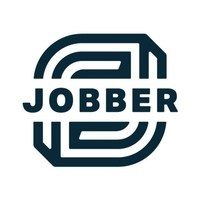
New integration marks CallRail’s commitment to expanding investment across the home services category
CallRail, the AI-powered lead intelligence platform, today announced an integration with Jobber, the leading provider of operations management software for home service businesses. With this integration, mutual customers—such as landscapers, plumbers, HVAC technicians, and painters—will get a better understanding of the performance of their acquisition channels and gain deeper insights into those leads to win more business without having to leave the Jobber platform.

By connecting to the CallRail app in the Jobber app marketplace, service pros will be able to see how potential leads discovered their business, the connection between the marketing sources and keywords that led to booked jobs, and view the communications history each lead had with their business.
“Teaming up with Jobber continues our longstanding commitment to supporting home service professionals as the only lead intelligence software directly integrated into technology that services pros are already using everyday,” Marc Ginsberg, CallRail CEO, said. “Our technology automatically surfaces actionable insights from calls and highlights the marketing activities that are bringing those leads. Now, these insights are available within the Jobber platform and connected with job-specific data to help service pros know what’s bringing their most profitable jobs.”
While the home service category continues to see a steady demand for services, advertising costs have increased significantly, causing many businesses to rely on lower cost lead generation services. The partnership will specifically enable mutual customers to easily access unprecedented details about customer journey, from lead to job, as well as unparalleled access to customer conversation data through CallRail’s Conversation Intelligence® platform. This will be especially important in 2024 as service pros will need to consider alternative ways to grow revenue and save on costs according to the latest Jobber Home Service Economic Report.
“Spending money on marketing can be intimidating for home service businesses, which often operate on tight budgets where every dollar counts,” said Sam Pillar, CEO and co-founder of Jobber. “These entrepreneurs want assurance that their hard-earned dollars are being invested efficiently. At Jobber, we want to take the guesswork out of running a successful home service business and provide the right tools for service pros to win work faster. This integration with CallRail is a great example of how we are doing that.”
“Marketing is critical to the success of our home services business, but wasting money on ads that don’t bring in leads can be detrimental,” said Branden Sewell, Owner of Seal Pro Painting. “Knowing where leads are coming from helps me know which marketing strategies are working effectively, and which ones need to be adjusted or scrapped. It saves time, money, and allows our business to focus on what matters most: booking jobs and getting paid.”
To learn more about how home service pros can make the most of this partnership, visit: https://callrail.com/blog/jobber-integration-easier-lead-management

From now until September 30, 2024, contractors in the Northwest can earn an additional $500 for every qualifying heat pump water heater they install, thanks to the Bonneville Power Administration’s (BPA) Comfort Ready Home program. To participate, contractors must be enrolled in the Comfort Ready Home Residential Contractor Network and join the Greener Water Heater promotion. The heat pump water Read more
From now until September 30, 2024, contractors in the Northwest can earn an additional $500 for every qualifying heat pump water heater they install, thanks to the Bonneville Power Administration’s (BPA) Comfort Ready Home program.
To participate, contractors must be enrolled in the Comfort Ready Home Residential Contractor Network and join the Greener Water Heater promotion. The heat pump water heaters must be listed on the BPA Qualified Products List and be installed in a single-family or manufactured home in a participating utility’s territory in Oregon, Washington, Idaho and Montana. See additional terms and conditions.
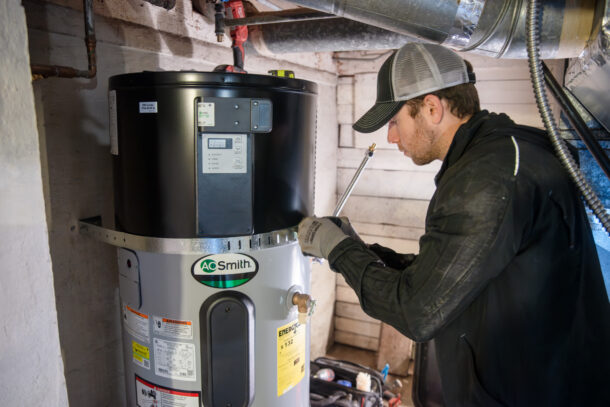
Plumbers and contractors can earn an additional $500 for every heat pump water heater installed through September 2024.
Heat pump water heaters use significantly less energy compared to standard electric units and according to ENERGY STAR can save families as much as $5,600 over the lifetime of the appliance. By participating in the Greener Water Heater promotion, contractors are providing their customers with the best value in water heating, as heat pump water heaters:
- Deliver more hot water than a standard electric resistance tank when properly sized
- Can be installed with little-to-no additional plumbing work
- Offer a 10-year manufacturer warranty on tank and parts
- Often include smart features like leak detection and Wi-Fi connectivity
Contractors will receive payments for each qualifying installation reported to Comfort Ready Home during the promotion period. They can also access free marketing materials for heat pump water heaters, personalized support from a Comfort Ready Home Field Specialist and on-demand training.
The Greener Water Heater promotion is part of Comfort Ready Home’s mission to help lower energy use in homes across the Northwest by connecting contractors, utilities, and homeowners to energy-efficient solutions.
For more information on the program, visit ComfortReadyHome.com/greener-water-heater-promotion.
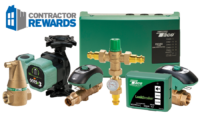
Taco Comfort Solutions has partnered with Contractor Rewards, a free program designed to reward professional contractors, plumbers, builders, and remodelers for buying the industry’s leading products. Customers earn points on Taco’s heating and plumbing products that can be redeemed for thousands of possible rewards – anything from movie tickets to tools or live events and Read more
Taco Comfort Solutions has partnered with Contractor Rewards, a free program designed to reward professional contractors, plumbers, builders, and remodelers for buying the industry’s leading products.
Customers earn points on Taco’s heating and plumbing products that can be redeemed for thousands of possible rewards – anything from movie tickets to tools or live events and vacations. Taco’s full catalog of residential heating and plumbing products is eligible. Points are earned on circulators, zone valves, or switching relays that were going to be purchased anyway.
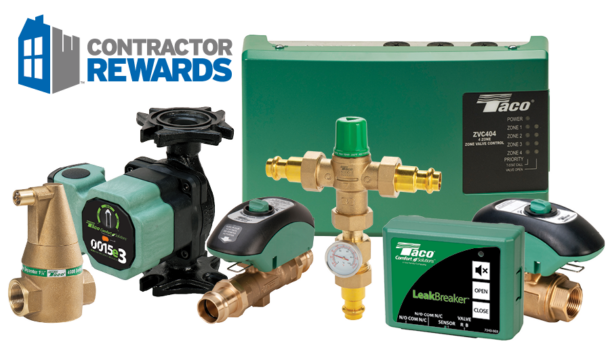
Enroll today and use the bonus code GreenRewards to earn 200 points, free. This jumpstart is Taco’s way of saying “thank you” to loyal customers. Signing up is free and only takes a minute. Just go to ContractorRewards.com and answer a few questions.
For questions, email ContractorSupport@ContractorRewards.com or call 1-877-286-7064.
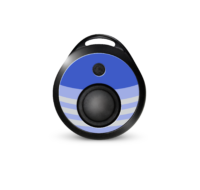
By: Chris Holbert, CEO of SecuraTrac Being a plumber is one of the most dangerous jobs in America. According to the Bureau of Labor Statistics, plumbers have one of the highest rates of injuries among all occupations. Often times plumbers are prone to slips and falls from high heights, working in confined spaces, and more Read more
By: Chris Holbert, CEO of SecuraTrac
Being a plumber is one of the most dangerous jobs in America. According to the Bureau of Labor Statistics, plumbers have one of the highest rates of injuries among all occupations. Often times plumbers are prone to slips and falls from high heights, working in confined spaces, and more. While plumbers have cell phones on them on the job, as well as having and wearing protective/preventative gear or equipment, it’s not necessarily the most efficient way to keep them safe or provide them tools to react in an emergency.
Depending on the job and what scenario they find themselves in, plumbers may not always have the ability to call 911 in an emergency. Or if they fall or a struck by an object, plumbers may be unconscious. This common scenario makes it impossible for the workers to use a cell phone and reach for help.
According to the Pew Research Center, approximately 95 percent of Americans now own a cell phone of some type, and more than one-third own a smartphone. Although these devices may provide many conveniences to users, in emergency situations their use is limited. Cellular devices require the user to still be conscious, or within range of the phone to call for help, making the device un-reliable for plumbers and not the most plausible option for ensuring workers stay safe.
But there’s a better solution to providing emergency communication for workers that can be easily carried or worn. The specific devices we are talking about is mPERS devices, which can automatically report an incident to emergency services so workers can receive help as soon as possible. mPERS devices, which have been used by seniors for years, are essentially a help button that can be pressed to alert emergency services that a worker needs help. In recent years, these devices have become even more beneficial outside of the senior space because they no longer require a base station device to place calls, which limited their range of use.
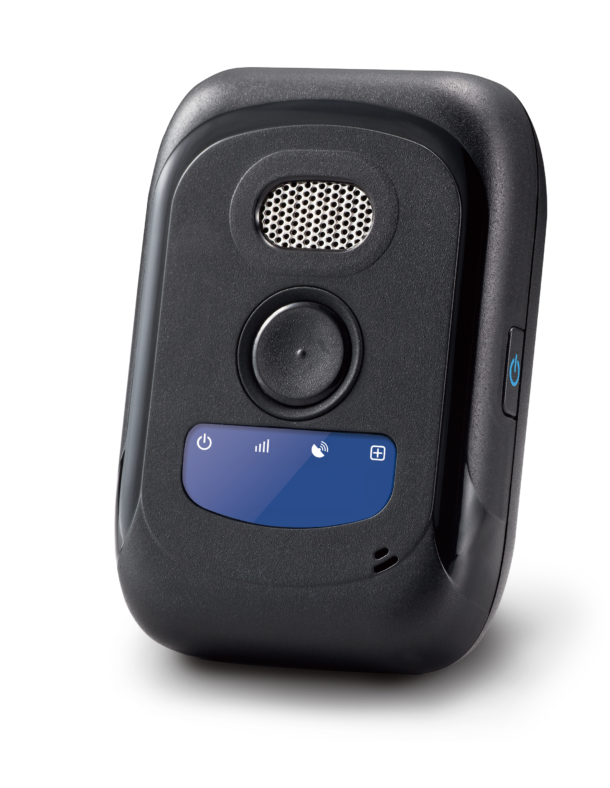
mPERS devices are small, portable, and lightweight. They use up-to-date location technology, and some even offer built-in fall advisory capabilities. These devices can detect horizontal and vertical movement and can initiate a call for help to emergency services without the need to even press a button. This is perfect in situations where plumbers may be unresponsive because of an accident or medical emergency, eliminating the need to call for help themselves entirely. The cloud-based technologies found in mPERS devices make it possible for Central Stations to pick up and response to the need for help as soon as possible. If a worker falls on the job, the device can report it via a text message or red flag in a software system.
The devices can also last much longer on one charge than a normal cell phone, making this another benefit of a mPERS device being used by plumbers. By having less functions, no screen, apps, or texting ability to drain battery, you aren’t constantly on them doing something. They can be turned off, but many also come with a “sleep” mode, where once the SOS button is pressed, the exact location information of the worker is sent to a central reporting station where an emergency call can be placed. There are mPERS devices on the market that can last up to 30 days on a single charge.
The use of mPERS devices can also make it easier to keep track of the number of incidences that occur, where they occur, and the type of accident that occurs. This is valuable information that can help implement newer safety tactics to avoid a repeat accident, for both workers and employers.
But not just any mPERS device can satisfy all the needs of all plumbers that will be utilizing this device. Several things should be considered before selecting a device. One of the most important considerations is looking into mPERS devices that are capable of 5G technology. By the end of this year, all major cell phone networks will fully transition to 5G technology, making out-of-date devices that can only handle 3G or 4G useless. Another consideration is the ability to upgrade an mPERS device down the line if it becomes necessary with new data networks and technologies evolving every day.

Whether it’s a pendant, clipped to the pocket or belt, etc. picking a wearable device (mPERS device) that makes the most sense for plumbers’ specific needs is an important part of taking advantage of all of the safety benefits that can potentially help save loves and improve the health of plumbers.
Personal Protective Equipment (PPE) has moved beyond heat insulated gloves, hard hats, eye protection, etc. While these are all vital pieces of equipment for plumbers to use, they can’t prevent and protect against everything. mPERS devices are another great addition to plumber PPE that doesn’t take up space, is easy to use, and can even work on its own without a user doing anything. Plumbers, and companies, should seriously consider and look into employing these devices as a standard across their practice. Instead of being stranded or calling out for help, a worker can receive connection to emergency services within seconds and in turn, prevent a bad situation from becoming worse by just the push of a button.
 Chris Holbert is the CEO of SecuraTrac. SecuraTrac® develops, markets, and sells a suite of mobile safety solutions focused on improving senior and employee health and safety through mobile, location-based technology and state-of-the-art, cloud-based platforms. For more information please visit: www.securatrac.com.
Chris Holbert is the CEO of SecuraTrac. SecuraTrac® develops, markets, and sells a suite of mobile safety solutions focused on improving senior and employee health and safety through mobile, location-based technology and state-of-the-art, cloud-based platforms. For more information please visit: www.securatrac.com.

The ability for plumbers to quickly move tools and equipment to job sites is one of the primary reasons why small business work trucks play such an important part in the plumbing industry. If plumbers didn’t have access to a dependable vehicle, they’d have to rely on public transportation or their own personal automobiles to Read more
The ability for plumbers to quickly move tools and equipment to job sites is one of the primary reasons why small business work trucks play such an important part in the plumbing industry. If plumbers didn’t have access to a dependable vehicle, they’d have to rely on public transportation or their own personal automobiles to get about, both of which are time-consuming and inconvenient options.
The capacity to transport a greater quantity of tools and supplies is one of the most significant benefits that comes with owning a work truck for a small business. When they go to a new job site, plumbers frequently need to bring a variety of tools and supplies with them. These may include pipes, fittings, water heaters, and other items. They are able to load and carry these materials with ease thanks to the use of a work truck, which ensures that they have everything they need to do the task.
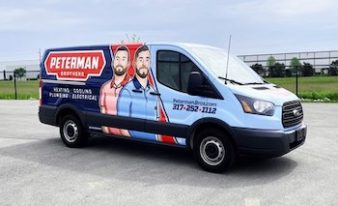 Work vehicles provide plumbers with a feeling of professionalism and trustworthiness, in addition to increasing the amount of equipment that can be transported. When a consumer sees a plumber arrive at their home in a truck that is neatly branded and well-organized, it may instill a sense of trust and confidence in the plumbing company’s abilities. A work truck may also function as a mobile advertisement for a company by having the firm’s logo and contact information displayed on it. This allows potential customers to view the advertisement as they are traveling about town in the work truck.
Work vehicles provide plumbers with a feeling of professionalism and trustworthiness, in addition to increasing the amount of equipment that can be transported. When a consumer sees a plumber arrive at their home in a truck that is neatly branded and well-organized, it may instill a sense of trust and confidence in the plumbing company’s abilities. A work truck may also function as a mobile advertisement for a company by having the firm’s logo and contact information displayed on it. This allows potential customers to view the advertisement as they are traveling about town in the work truck.
The capacity of small company work trucks to safely store tools and equipment is one further advantage offered by these vehicles. When working on plumbing projects, plumbers frequently use high-priced gear and equipment that must be safeguarded against the risk of being stolen or damaged. They are able to secure these goods inside of a work vehicle and keep them out of harm’s way while they are not using them.
Productivity has increased since plumbers are able to swiftly and readily reach the tools and equipment they require while working thanks to the availability of work trucks. This can assist to save time and boost production, both of which can contribute to increased profitability for the company.
A work vehicle enables plumbers to respond to the demands of their customers more rapidly, since they are able to simply transfer the essential tools and equipment to the location of the task. This results in improved customer service. This has the potential to result in greater levels of client satisfaction as well as more recurring business.
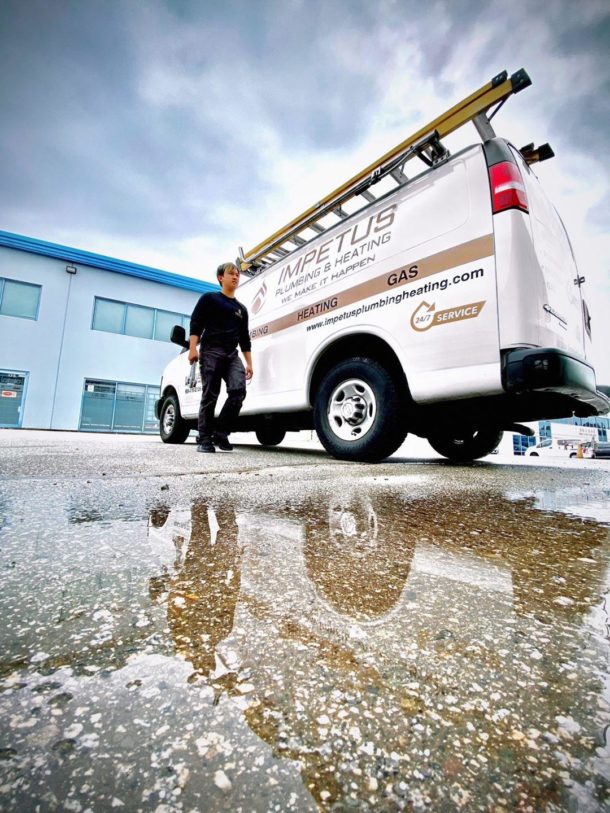
Work trucks may also assist to increase safety on the job site, which is another benefit of using them. It is far safer for plumbers not to have to risk harm by carrying heavy goods by hand if they have access to a truck that is specifically designed for the purpose of hauling plumbing supplies and equipment.
Greater flexibility: Plumbers who own their own work trucks have the ability to take on tasks in a variety of places without having to rely on other modes of transportation, such as public transit or their own personal automobiles. This is something that may be very helpful in remote locations, as well as when coping with unforeseen events.
Increased storage capacity: Because work trucks often have more storage room than personal automobiles, plumbers are able to bring a greater quantity of tools and equipment with them to job locations when they use these vehicles. This may prove to be especially helpful for larger, more complicated tasks that need a wide array of specialist equipment.
Options for customization It’s possible to tailor a lot of different work trucks to the particular requirements of a plumbing company. For instance, plumbers might outfit the interior of their van with racks, drawers, and many other storage options to maintain the tools and equipment in an organized fashion and make them conveniently available.
Work trucks may also assist to boost efficiency on the construction site, which is one of its primary benefits. The time spent looking for goods or driving back and forth to acquire them may be cut down significantly for plumbers if they keep all of the required tools and equipment close at hand and easily available. This may assist to enhance production while decreasing the amount of time wasted waiting.
Work vehicles may also give an additional layer of protection for a plumbing company, which is an important consideration. The majority of work trucks include storage compartments that can be locked, which enables plumbers to keep their tools and equipment safe while they are not using them. Theft and damage are two things that may be quite expensive for a small business, and this can help avoid them.
Utilizing a work truck for commercial reasons can also assist in lowering the amount of wear and tear that is placed on a person’s personal car. If a plumber uses their personal vehicle to transport tools and equipment, that plumber’s vehicle may see a greater amount of wear and tear over the course of their career. It is possible for plumbers to make their personal vehicles last longer if they invest in a work truck designed expressly for use in their businesses.

Possible savings on taxes There is a possibility that purchasing a small company work vehicle might save money on taxes. When filing tax returns, a plumbing company might be able to claim a tax deduction for the cost of purchasing a work vehicle, depending on the particulars of the company’s finances. It is always recommended to speak with a tax specialist in order to discover the precise tax ramifications of acquiring a work vehicle. This is because tax laws are complicated and always changing.
Work trucks can contribute to an increase in site organization and make the work environment more efficient. The ability of plumbers to maintain a clean and organized work space, which can contribute to increased levels of efficiency and production, is made possible by the availability of dedicated storage space for tools and equipment.
Increased portability: Plumbers can benefit from increased portability thanks to the availability of work vehicles. Because they are able to readily travel to job sites in a variety of places, plumbers who have access to a work truck may be very beneficial to plumbing companies that serve a vast service area.
Work trucks may also be a cost-effective choice for plumbers, making them a good alternative to consider. It is possible that using a work truck rather than hiring a van or truck for certain task locations will be more cost-effective overall in some circumstances. Using a work truck instead of a personal vehicle may also be more cost-effective in the long run due to the fact that work trucks are purpose-built to transport tools and equipment and have a lesser potential for requiring costly repairs and maintenance over time.
Opportunities for custom branding: A plumbing company’s work vehicles may also be used as a tool for marketing the company’s services. The ability to brand one’s own work truck with one’s firm logo and contact information is one way that tradespeople, such as plumbers, may raise their profile in the community and bring in new clients.
To summarize, work trucks for small businesses are an important component of the plumbing sector. They enable plumbers to move tools and equipment to job locations quickly and effectively, present an air of professionalism, and store tools and equipment safely. It may eventually save plumbers time and money, in addition to assisting them in growing their business, if they make the investment in a dependable work truck.
